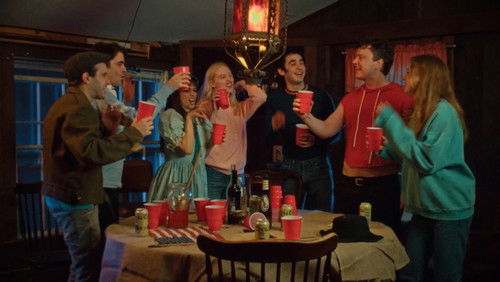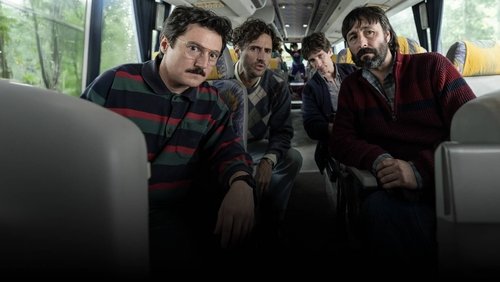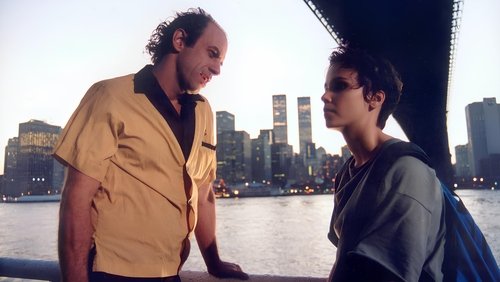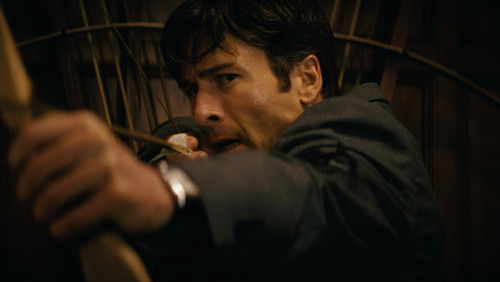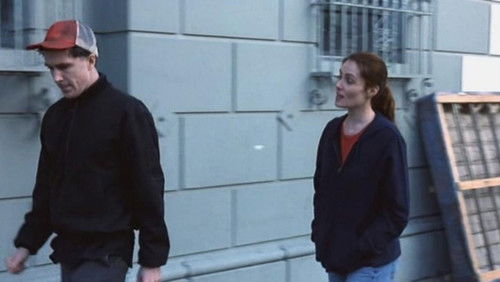The Consequences of Love (2004)
56KThe Consequences of Love (2004). 1h 40m
“This is a very visual film. By that I mean that the dialog is sparse, almost to the point of being a silent movie for some very long takes, beginning with the opening shot.u003cbr/u003eu003cbr/u003eThe silences, however, are broken by a stunning sound track that ranges from discordant, staccato beats to a haunting mix of violins, and interspersed with vocals that sound like dreams. Itu0026#39;s a feast for the ears as much as for the eyes, one of the early visuals being a man walking along a street, so preoccupied with his interest in a shapely woman, that he walks into a lamppost: one of the consequences of love and a metaphor for what lies in store…u003cbr/u003eu003cbr/u003eA long time ago, another movie Love Story (1970) — said that love is never having to say youu0026#39;re sorry. This narrative turns that idea on its head in a number of ways, beginning with the main character, Titta (Toni Sevillo), a seemingly innocuous long-term resident in a plush hotel somewhere in Switzerland. Everyday, week in, week out, he sits at the same coffee table, enjoying the passing world, his cigarettes, his coffee, his solitude and heu0026#39;s been doing it for ten years. He sits, he observes, and once a week he engages in three very surprising activities that youu0026#39;ll find out about when you see this little masterpiece…u003cbr/u003eu003cbr/u003eLove is explored in another way, in a direct counterpoint to Tittau0026#39;s solitude and reserved nature: two older residents of the hotel are still much in love, but the man wants to die in a spectacular manner when his time comes, while his long suffering wife berates him for cheating at cards with the other guests, one of whom is Titta. Now, Titta knows about their squabbles, their love, the manu0026#39;s cheating, his apologies to his wife, and his whining. How? In a surprising and black-comedic manner…one of those surprise activities I mentioned.u003cbr/u003eu003cbr/u003eBut, this is no comedy, in reality, although it does touch upon the idea of the human comedy in a Balzacian sense: the irony of life and what to do with it. That decision had been made for Titta ten years earlier when he left his wife and began to live in the hotel. He keeps in touch occasionally, and it is clear that he still loves his children (now grown up) and the sorrow in his voice speaks volumes. But, thereu0026#39;s something more than just sorrow…u003cbr/u003eu003cbr/u003eSuch a life as Tittau0026#39;s would obviously seem to be utterly boring, and it actually is from many perspectives. It is only when we learn what lies beneath his almost death-like countenance, however, that the horror of his situation hits the viewer between the eyes. But not before we know that the female bartender, Sofia (Olivia Magnani), is very interested in Titta and goes out of her way to pique Tittau0026#39;s interest in her.u003cbr/u003eu003cbr/u003eAnd thatu0026#39;s when things start to unravel for Titta: he eventually succumbs to her femininity and in doing so discovers, once again, the consequences of love. Ironically, in doing so, he finally realizes what he must finally do with his life, and in a most spectacular fashion.u003cbr/u003eu003cbr/u003eI know that all of the above is somewhat cryptic; but, to say more would spoil the film and story for you. If you like Italian cinema I love it! I urge you to see this one. The acting is superb; the sound track chills the spine; the camera work is truly innovative; the direction shows the maturity of a true artist.u003cbr/u003eu003cbr/u003eI know Iu0026#39;ll see this movie again, and again…”

